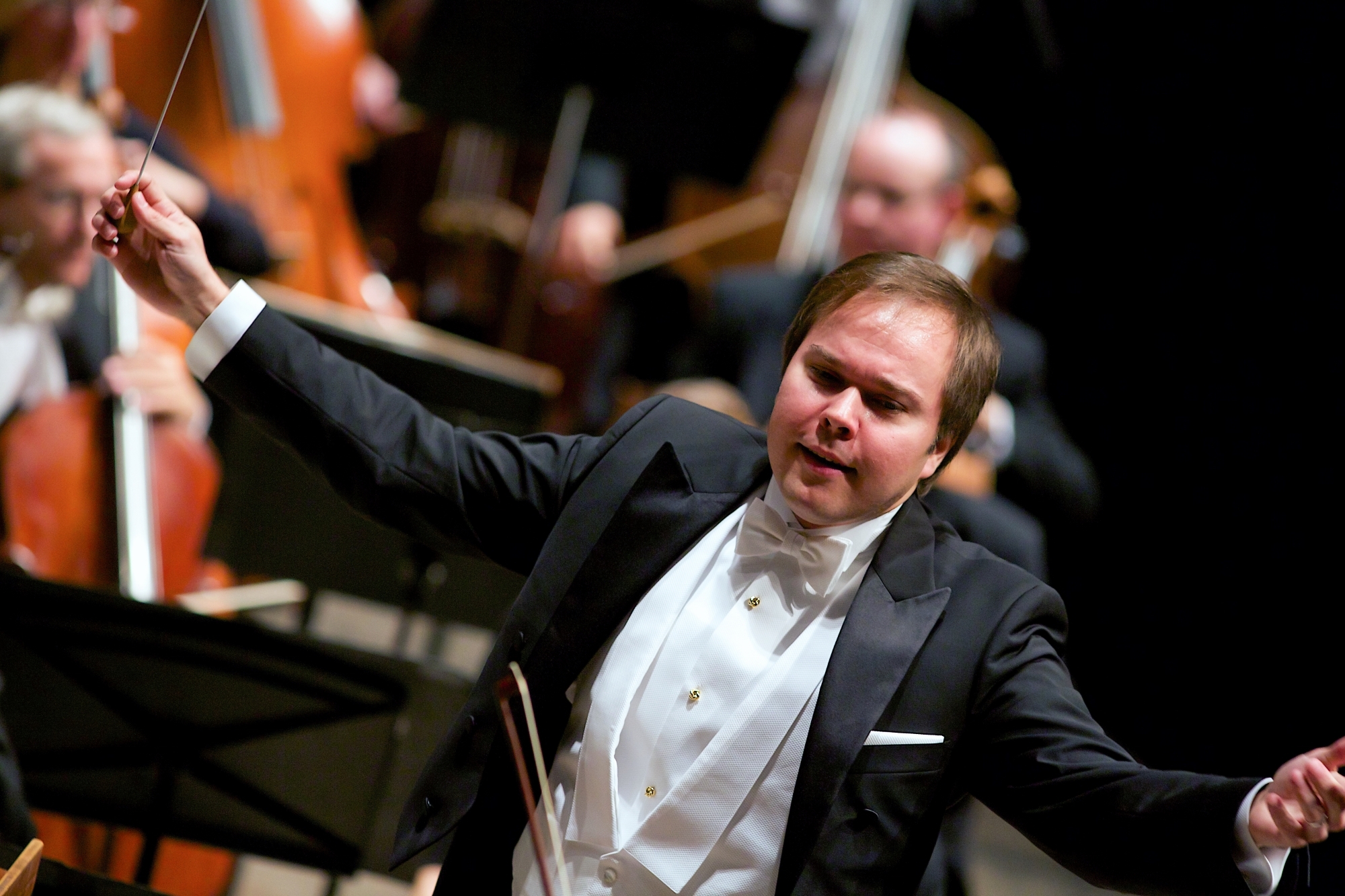In Western music canon, Ludwig van Beethoven was one of the first freelance composers. Unlike his predecessors — Bach, Mozart and Haydn — he had no royal patron to please. Beethoven wrote music for himself, and for greater humanity. “What I have in my heart must come out; that is the reason why I compose,” he said. Knowing this makes the impassioned plea for universal fellowship and peace in his “Symphony No. 9” all the more powerful.
Performing Beethoven’s Ninth Symphony is no ordinary event. To end its 2017-18 season on Friday night, the Grand Rapids Symphony (GRS) and the 140-member Grand Rapids Symphony Chorus rose to the occasion. Music Director Marcelo Lehninger conducted the concert, which also featured two pieces inspired by the composer’s life and work.
Choosing music to accompany Beethoven’s monumental ninth symphony is no easy task. Lehninger made an imaginative decision to balance it with two contemporary works in the first half of the program. Brazilian composer Ronaldo Miranda wrote “Temporal Variations, Beethoven Revisited” to reinterpret several Beethoven works. Lehninger conducted the world premiere of the work in Sao Paulo in 2014. It was fun to seek the quotations of Beethoven works within each orchestral episode, even as the piece became increasingly meandering. The orchestra’s sound was balanced and clear, and adjusted to the piece’s many tempo and tonal shifts with plenty of energy and bite.
The GRS then performed a world premiere of “Testament” by local composer and assistant principal oboist, Alexander Lamont Miller. He structured the piece for orchestra, chorus and solo baritone around The Heiligenstadt Testament, a letter Beethoven wrote (and never sent) to his brothers. In the letter, Beethoven expressed his despair over his impending deafness — and his desire to live through adversity for the sake of his art. As mentioned in the program notes, the letter speaks to Miller as a composer who has lived through two brain surgeries, follow-up care and resulting side conditions.
“Testament” is an episodic and raw piece that does not sugarcoat the anguish, anxiety and desperation that comes with this experience. Baritone Richard Zeller and the chorus sang impactful lines selected from the original text (“Art held you back”) against the restless orchestral accompaniment. The pairing of the words “what a humiliation when one stood beside me and heard a flute in the distance and I heard nothing” with a faint, taunting flute melody was particularly effective.
Rather than leaving listeners with an overt message of hope, the ending of “Testament” conveyed agony and agitation, mirroring an artist’s difficult decision to live for their art in the face of insurmountable challenges. Miller emerged from the audience to accept a warm standing ovation.
The second half of the concert was dedicated completely to Beethoven’s Ninth. With Lehninger leading a controlled and reverent interpretation, any minor quibbles heard were surpassed by the sheer exuberance the orchestra, chorus and soloists put into the performance. The opening melodies creeped and then crashed into being, establishing a sense of mystery in the first movement. Precise entrances and bucolic, pulsing energy in the scherzo movement captured all of the score’s inherent unruliness and forward drive. The jumpcut serenity and seriousness of the third movement provided contrast veering on the edge of incongruity.
Then came the finale with a wellspring of emotion and possibilities for humankind. The low strings set a tone of pure solace with sinewy articulation of the “Ode to Joy” melody. Zeller sturdily led the entrance of the chorus with the German words for “Joy, brilliant spark of the gods, daughter of Elysium.” The vocal quartet (including soprano Jessica Rivera, mezzo-soprano Susan Platts and tenor John Matthew Myers), joined Zeller in ebullient expression of the following strains. The music swelled to embody humanity's awe of the vast cosmos, reminding us of our inconsequence in its scope. Then the music came crashing back down to earth for the symphony’s euphoric end.
Beethoven’s 9th
Grand Rapids Symphony
May 18-19
grsymphony.org





